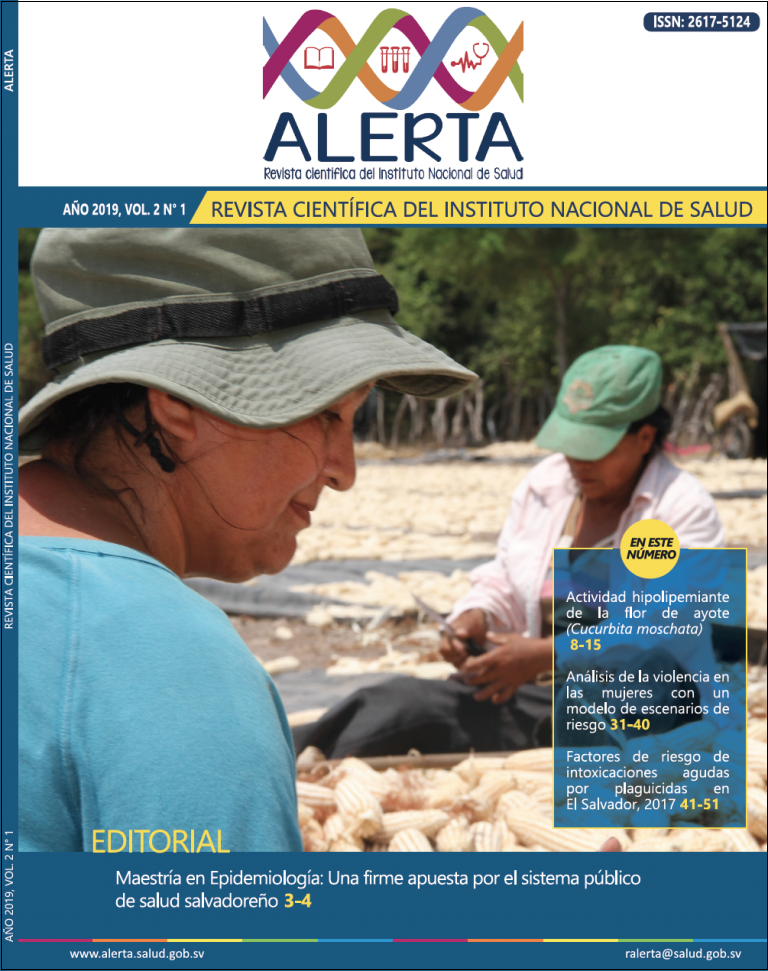Hipolipemiante activity of the ayote flower (Cucurbita moshata)
DOI:
https://doi.org/10.5377/alerta.v2i1.7516Abstract
Introduction: Cucurbita moschata flowers are consumed in certain places of Latin America. It has extensive therapeutic uses; therefore, efforts have been made to validate these characteristics under controlled conditions. Objective: To evaluate the toxicity and lipid-lowering activity of C. moschata flower decoction in experimental mice. Methodology: The study substance was administered orally, daily, for four weeks in three concentrations: 1 g/10 mL, 3 g/10 mL and 6 g/10 mL; in addition, a control group was established. Two weeks before, both groups were induced to a high-fat and carbohydrate diet, which was maintained throughout the investigation. Toxicity with the highest oral concentration, for 28 days, was evaluated previously. Results: The evaluated concentration did not induce toxicity in treated animals. The lipid-lowering activity showed a decrease in glucose levels with all treatments, while triglycerides and cholesterol showed only a decrease in low and medium levels. Conclusions: The evaluated decoction has potential for the treatment of dyslipidemias, without producing adverse effects in laboratory mice.
Downloads
1368
Downloads
Published
How to Cite
Issue
Section
License
Copyright (c) 2019 Diana Córdova, Claudia Soto, Floridalva Valle, José Guillermo Mejía

This work is licensed under a Creative Commons Attribution 4.0 International License.
Privacy statement:
Alerta articles are published under license Creative Commons 4.0 CC BY: https://creativecommons.org/licenses/by/4.0/
Authorship rights
Revista Alerta gives the authors exclusive control of their work and the right to be acknowledged and cited.





